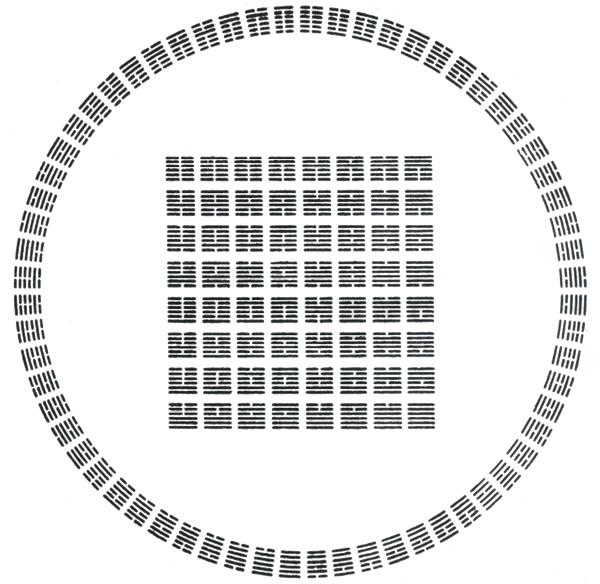
String Theory I Ching Hexagrams and the SixStringed Guitar Evolve + Ascend
The name of each hexagram in Traditional Chinese can be found in the left column. For each Gua, the left column gives the binary representation of the Gua. For example, the first Gua is "Qian", and it can be represented by "111111". When the table is sorted by this column, it will also be sorted by the binary representation of the Gua, and the.
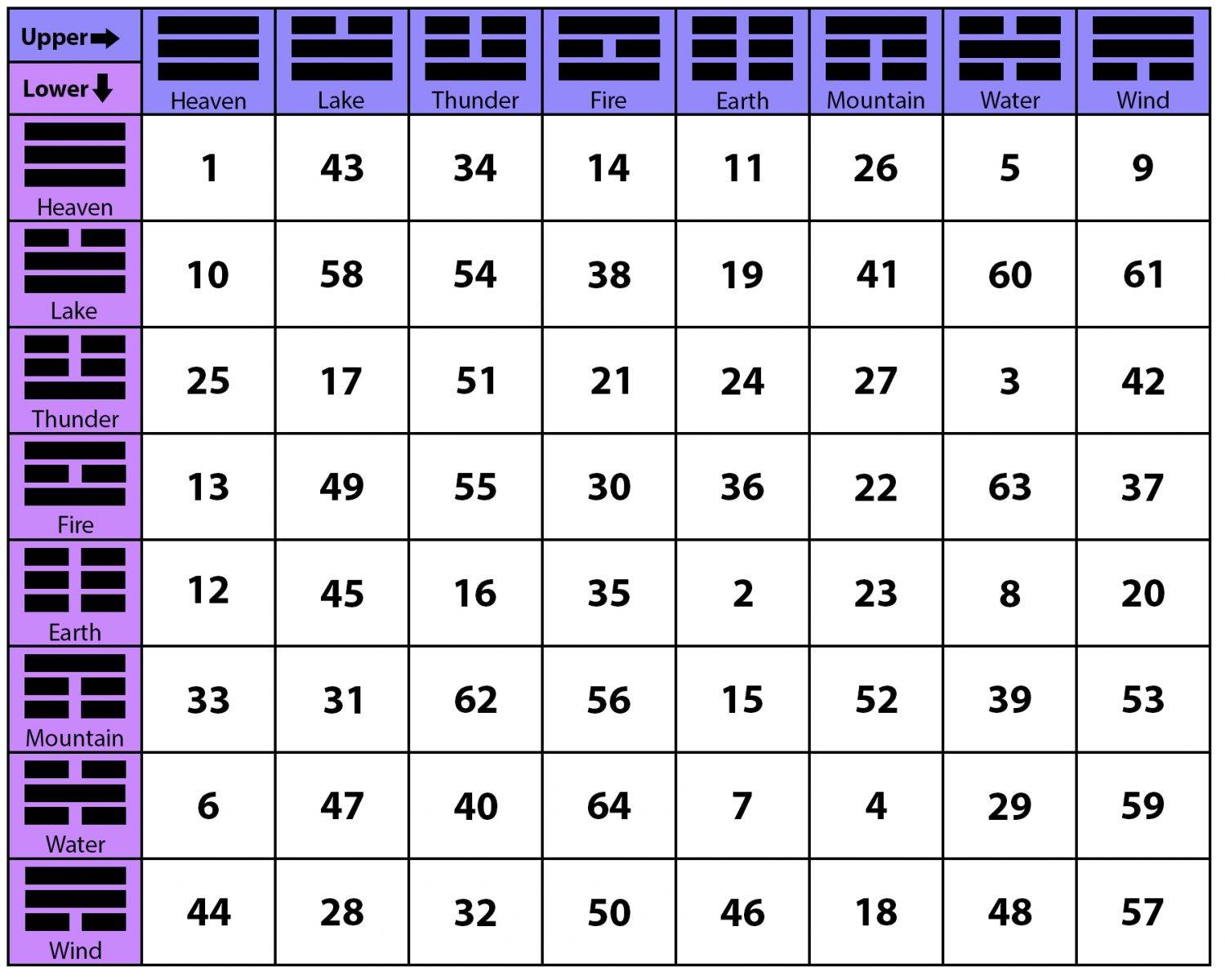
An Introduction To I Ching Witches Lore
Free Online I Ching Hexagrams Reading. I Ching is the ancient Chinese manual for divination, where 64 hexagrams are used to answer whatever question you might have regarding your present and your future (well, your past, too, if there's something in it still gnawing you). Here you can try the I Ching online and do your own reading.
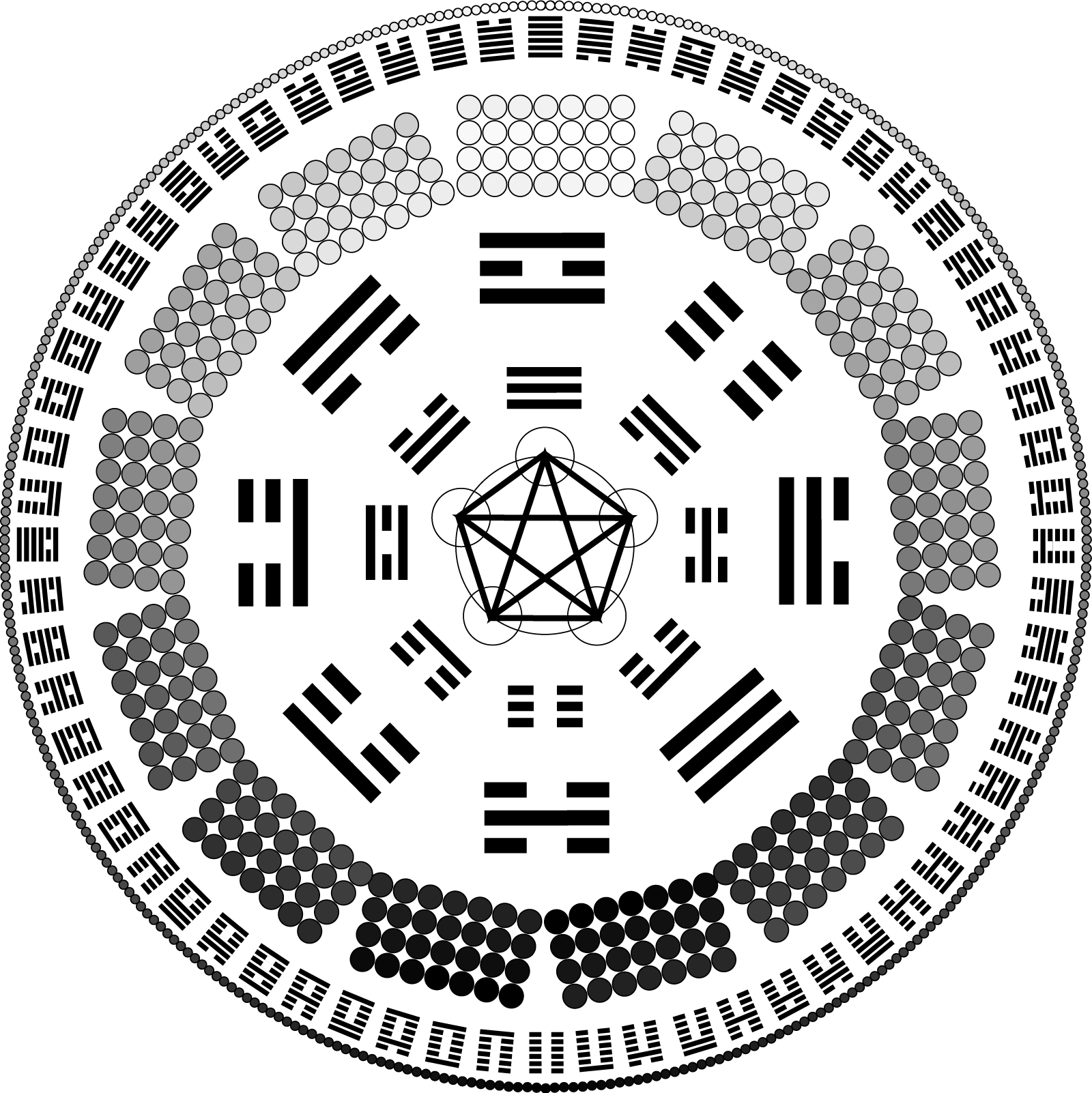
IChing Experience Encoded
The I Ching or Yi Jing (Chinese: 易經, Mandarin: [î tɕíŋ] ⓘ), usually translated Book of Changes or Classic of Changes, is an ancient Chinese divination text that is among the oldest of the Chinese classics.The I Ching was originally a divination manual in the Western Zhou period (1000-750 BC). Over the course of the Warring States and early imperial periods (500-200 BC), it.
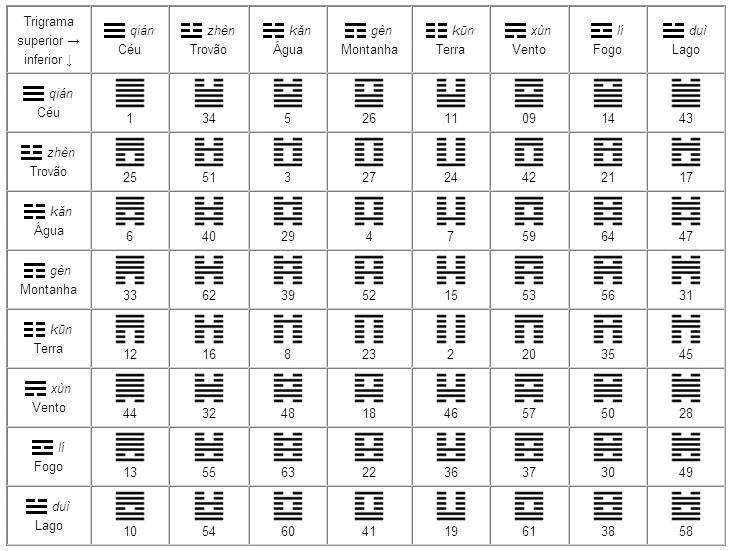
FileHexagramasIChing.jpg Wiki
The 64 I Ching Hexagrams An I Ching hexagram is composed of two trigrams. Each of the 64 hexagrams has its own name, meaning, and divinatory text. Here they all are, in the traditional order. Click on the image of an I Ching hexagram to get to its webpage. 1 Creative: 2 Receptive: 3 Difficulty: 4 Folly: 5 Waiting: 6 Conflict: 7 Army: 8 Union: 9
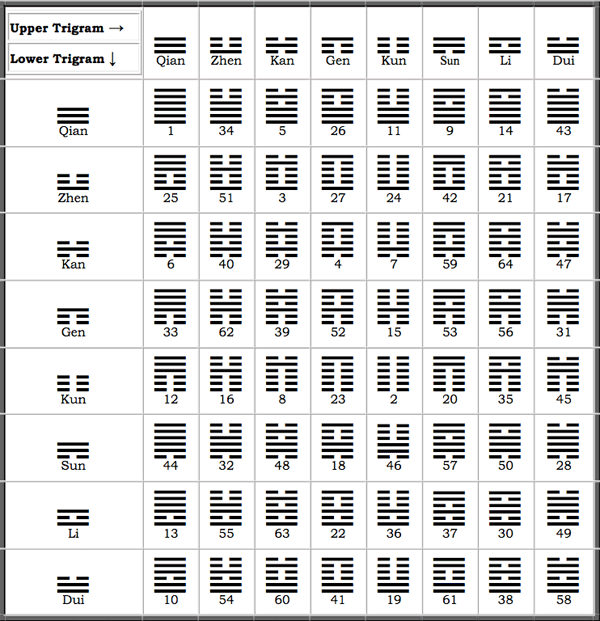
The Hexagrams I Ching Mothering Change
The I Ching hexagrams have their own symbolic meanings, but these stem from the two trigrams of which they consist. A trigram is a combination of three lines that can either be whole or broken in two. That makes a total of eight possible trigrams (2 x 2 x 2). Each trigram represents a basic natural force.

The 64 Hexagrams of The I Ching Self Control SelfManagement
Hexagram 59 is named 渙 (huàn), "Dispersing". Other variations include "dispersion (dissolution)" and "dispersal". The symbol means dissipate, dissolve, vanish. Its inner (lower) trigram is ☵ ( 坎 kǎn) gorge = ( 水) water, and its outer (upper) trigram is ☴ ( 巽 xùn) ground = ( 風) wind. Character information.
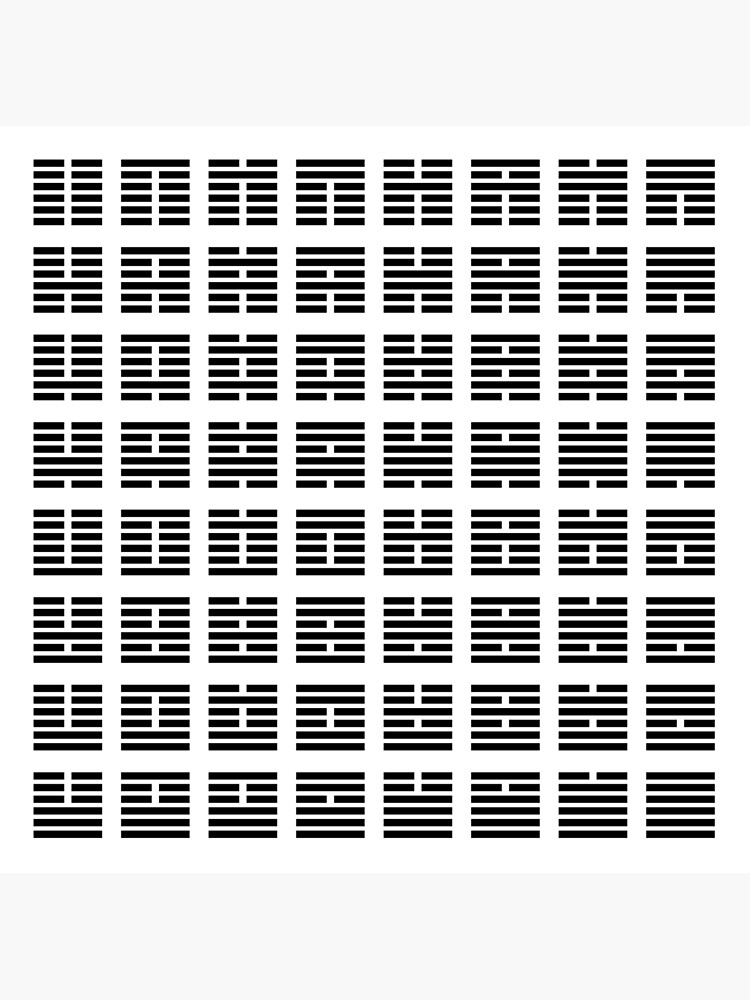
"I Ching hexagrams" Art Print by rupertrussell Redbubble
Hexagram 59 Huan Dispersion. Hexagram 60 Jie Limitation. Hexagram 61 Zhong Fu Inner Truth. Hexagram 62 Xiao Guo Small Exceeding. Hexagram 63 Chi Chi After Completion. Hexagram 64 Wei Chi Before Completion. I Ching Hexagrams - The list of 64 hexagrams and information about all hexagrams from the I Ching Book of Changes.
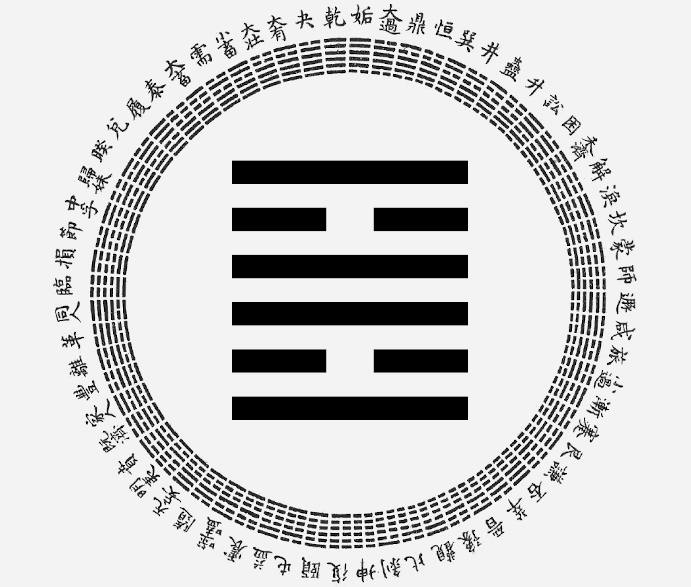
I Ching reading and its astrological interpretation, 64 hexagrams
iFate's second custom translation of the ancient "Book of Changes" is specially adapted to questions of love and romance. These special "Love I Ching" interpretations are used in iFate's Love I Ching readings. #1 - Heavenly Love. #2 - Receptivity To Love. #3 - Trouble At The Start.

IChing Hexagrams (Illustration) World History Encyclopedia
The guidance of the I Ching will turn on and tune up your intuition. If you get even one outside-the-box idea or inspiration that helps you make a more creative or timely decision, the Visionary I Ching has done its job — helping you to make better decisions, better relationships and less stress!. TO PURCHASE the new "Visionary I Ching" App go to the iOS or Android market.

The I Ching Hexagrams Сакральная геометрия, Геометрия, Диаграмм
I Ching, the earliest known divination tool, uses 64 hexagrams to impart ancient wisdom in the modern world. I Ching hexagrams are figures comprised of six stacked horizontal lines, with each line representing Yin or Yang. Each line of every hexagram has meaning, and together each line adds up to the whole meaning of the hexagram.
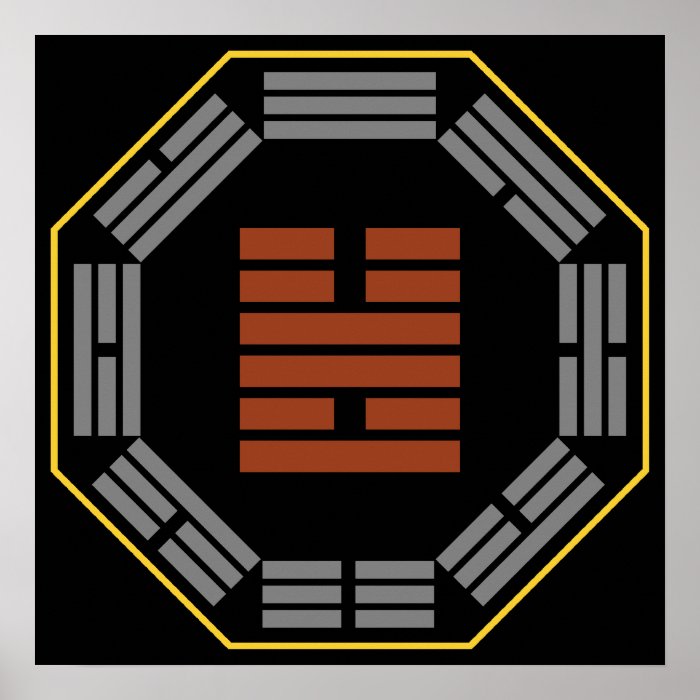
I ching hexagrams mondohrom
Each hexagram in the "Book of Changes" correlates with some text that will help you to make the right decision. Use the table below to learn what I Ching tells you. To find you hexagram in the table, you need to divide it (hexagram) in spirit into two parts: upper and lower trigrams. On the cross of corresponding column and line you will find.
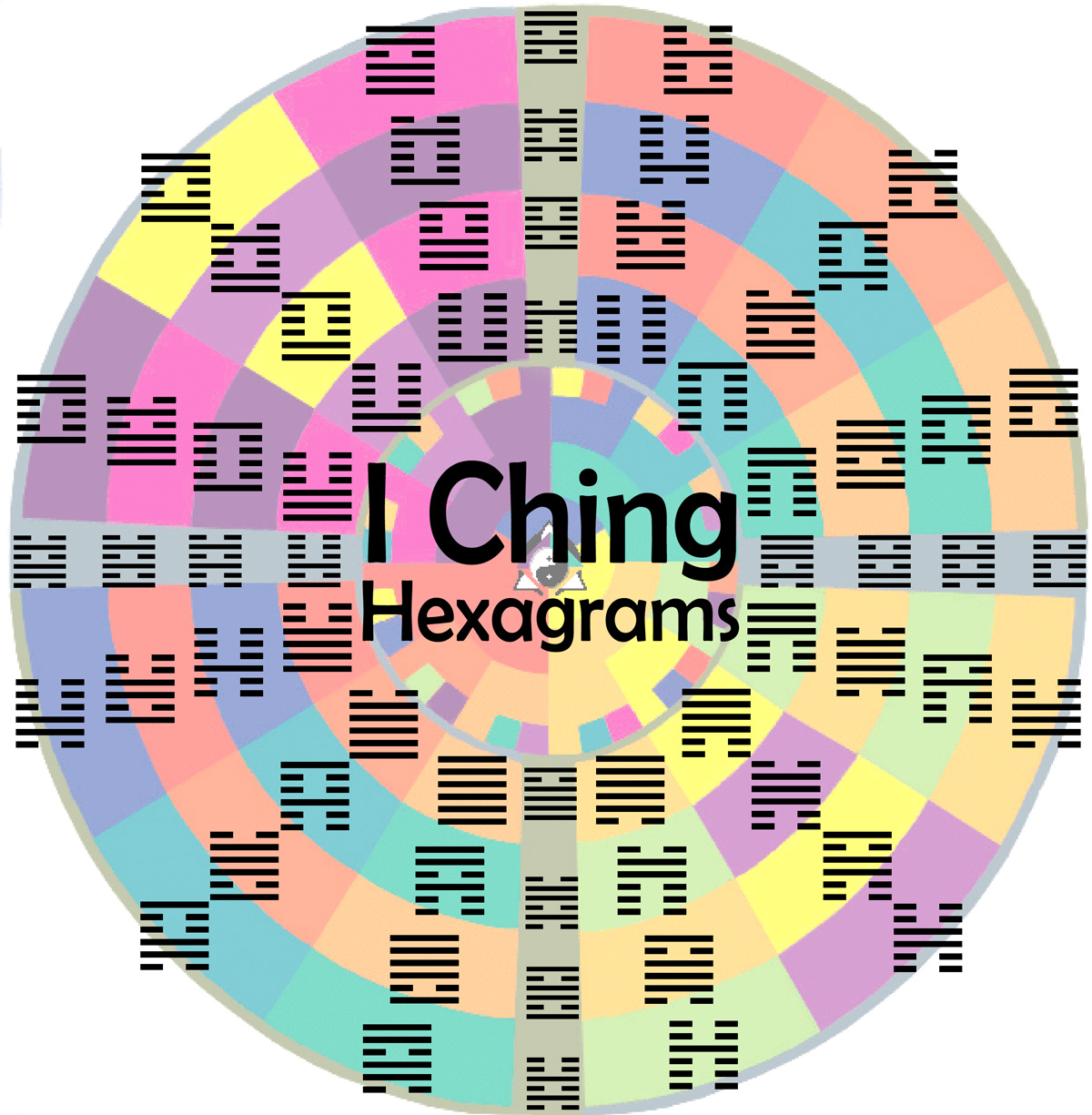
I_CHING_HEXAGRAMS_GREAT_WHEEL World Clock
I Ching, the classic Book-of-Changes. . This is I Ching Online.NET, where you can save your readings in your personal account. Any vital question you may have, ask it here. Ask advice about your health, dietary supplements (whether you need any food supplies), medication, your relation, getting rich, or even how to fix your TV set that is broken!

Symbols with i ching hexagrams Royalty Free Vector Image
The I Ching (The Book of Change, also spelled Yi Jing) is one of the oldest books of Ancient China. The I Ching is based on the cosmology of yin and yang, the fundamental opposite forces of the universe. These are applied to a system of divination, which you can try here online for free. The I Ching consists of 64 hexagrams, which are diagrams.
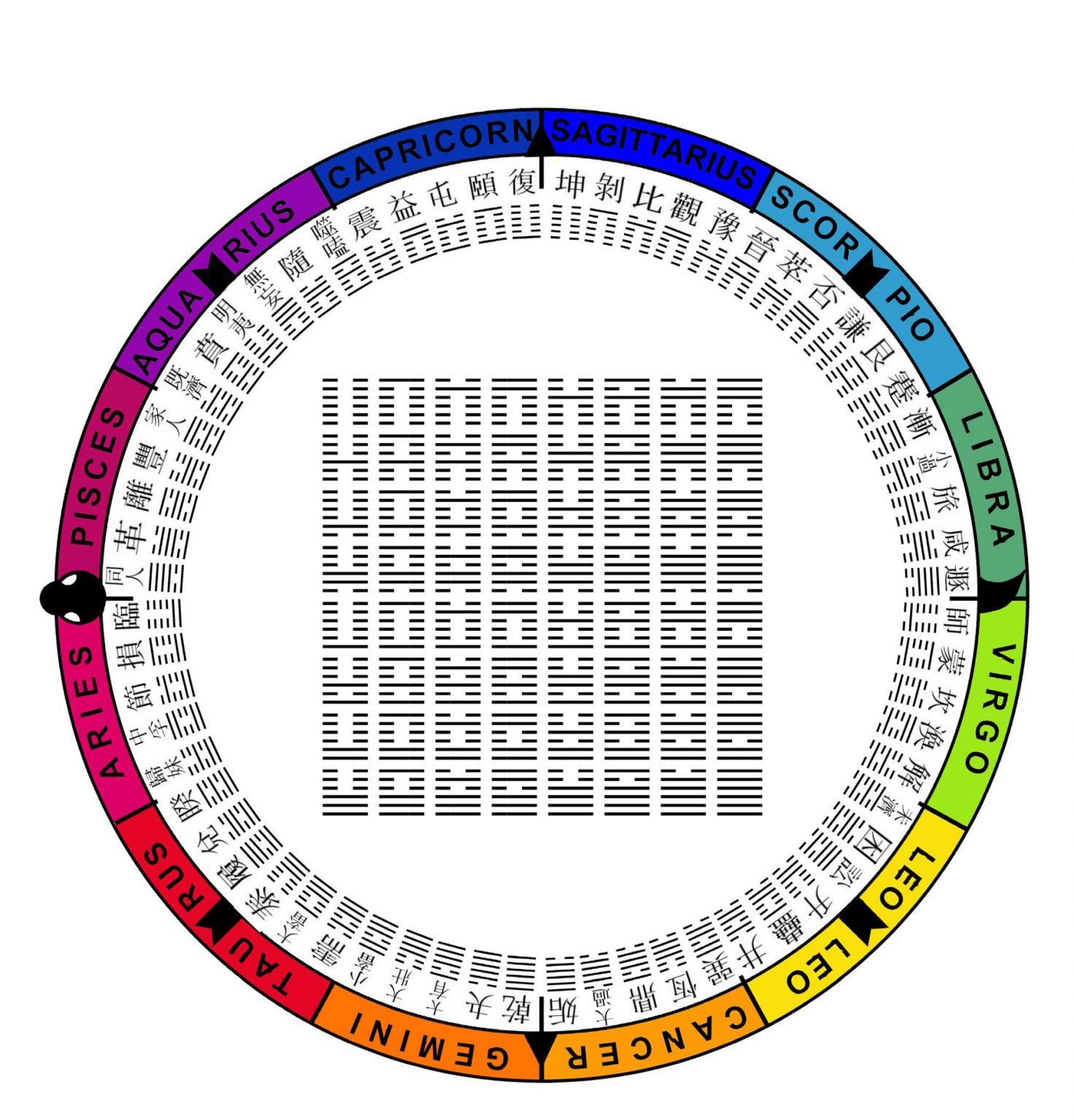
The Hexagram Sequence I Ching Hexagrams
The I Ching consists of 64 hexagrams, each with its own unique meaning and symbolism. Here is a brief summary of the meanings associated with each I Ching hexagram: The 64 Hexagrams in the I Ching Meanings. 1 Chien (The Creative): Strength, creativity, leadership, initiative. 2 K'un (The Receptive): Nurturing, receptivity, harmony, stability.
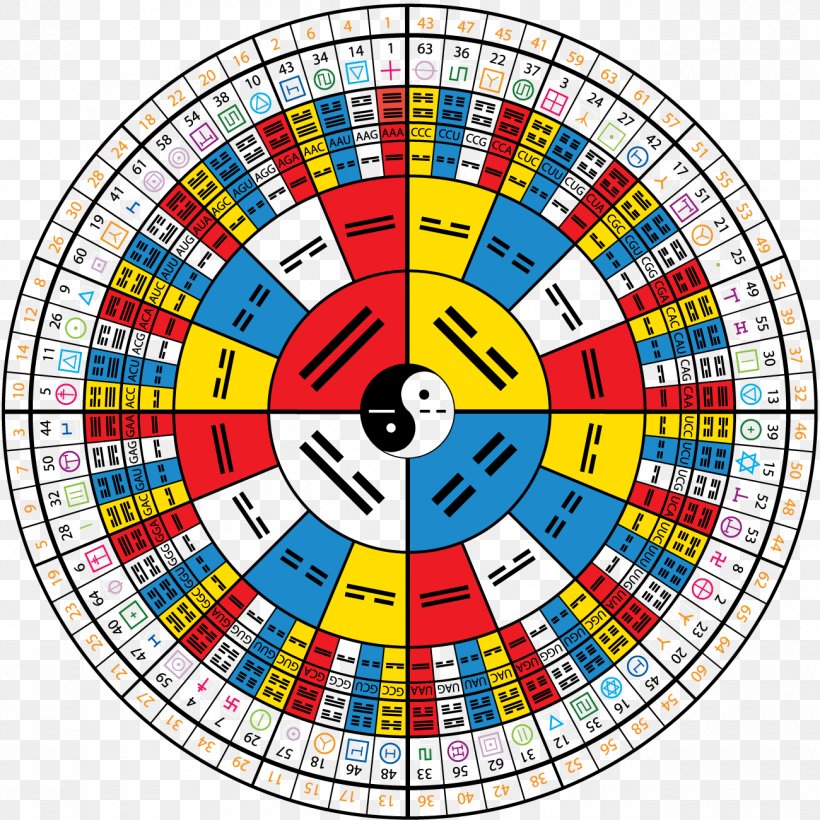
I Ching Divination Hexagram Bagua, PNG, 1300x1300px, I Ching, Area, Bagua, Chinese Classics
The I Ching, or Book of Changes, is the most widely read of the five Chinese Classics. The book was traditionally written by the legendary Chinese Emperor Fu Hsi (2953-2838 B.C.). It is possible that the the I Ching originated from a prehistoric divination technique which dates back as far as 5000 B.C. Thus it may be the oldest text at this site.

Symbols with diagram i ching hexagrams Royalty Free Vector
Book cover of The I Ching or Book of Changes: A Guide to Life's Turning Points (The Essential Wisdom Library) by Brian Brown Walker, English reprint edition, published 1992 by St. Martin's Griffin; with Anonymous illustration of I Ching Hexagrams, via Ancient History Encyclopedia. Two of the most notable Chinese philosophers, Lao Tzu and Confucius, were familiar with the I Ching by Fu Xi.